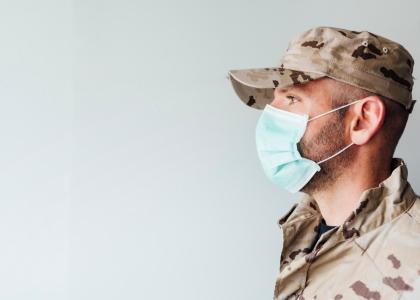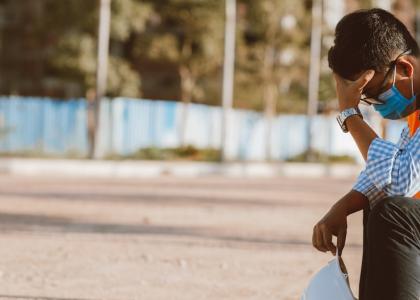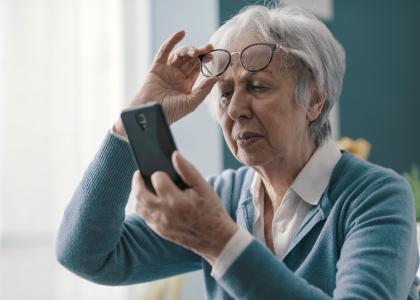American Indian or Alaska Native
Transdisciplinary Research, Equity and Engagement Center for Advancing Behavioral Health

This project will develop an innovative Transdisciplinary Research, Equity and Engagement Center for Advancing Behavioral Health (TREE Center) that will expand on the knowledge, research capacities and cross-sectoral collaborations established by the former NM CARES Health Disparities Center.
Advancing Research on Mechanisms of Resilience (ARMOR): Prospective Longitudinal Study of Adaptation in New Military Recruits

The overarching goal of this study is to improve our understanding of resilience processes related to the economic, social, and personal impacts of the COVID-19 pandemic and their downstream mental health outcomes in National Guard soldiers.
Southwest Health Equity Research Collaborative

The overarching goals of the project are to (1) document impacts of relaxed restrictions for telemedicine and mHealth; and (2) assess implementation of MAT “take-homes” for people in substance use disorder treatment in rural, underserved, and minority communities in Arizona in the wake of COVID-19.
Testing of a Patient-Centered e-Health Implementation Model in Addiction Treatment

This project will enhance the ACHESS smartphone app with new COVID-19 related features and then examine how patients use ACHESS features, how organizations refer patients to the ACHESS, how they interact with patients in ACHESS, and the overall impact of the ACHESS features.
Defining Trajectories of Linguistic, Cognitive-Communicative and Quality of Life Outcomes in Aphasia

This project aims to examine the effect of COVID-19 on telerehabilitation access and the cognitive-communicative and psychosocial health outcomes for patients with aphasia.
Policies on Racial/Ethnic and Socioeconomic Disparities in Mental Health and Healthcare Utilization

The goal of this study is to leverage, expand upon, and link existing national data sets to test the hypothesis that county-level public health and social policies have affected disparities in mental health and healthcare utilization.
Impact of the COVID-19 Pandemic on Patients with Alzheimer's Disease and Alzheimer's Disease Related Dementias

In this project, we will examine the impact of changes in outpatient and inpatient care on clinical event rates and deaths among older patients with Alzheimer’s Disease and Alzheimer’s Disease Related Dementias living in the community.
A New Database to Measure the Association Between Income, Race, and Mortality: Inequality in Longevity During and Beyond the COVID-19 Pandemic Disparities

This project will build a public database of mortality rates incorporating socioeconomic and demographic variables across the U.S. population. Researchers will be able to analyze the sources of disparate impacts of COVID-19 on mortality across subgroups, with the aim of understanding how to reduce health inequality.
CV Wizard: Does a Prioritized, Point-of-Care Clinical Decision Support Tool Improve Guideline-Based CVD Risk Factor Control in Safety Net Clinics?

This project will assess virtual care's impact on cardiovascular disease risk management in community health centers and the role of patient-facing clinical decision support tools during the pandemic. Specifically, it investigates how the shift to virtual care (VC) affects cardiovascular disease (CVD) risk management; the shift’s impact on existing health disparities in vulnerable populations; and whether CVD care in VC can be enhanced by the use of patient-centered clinical decision support tools.
StepWell: Stepped Care Mental Health and Substance Use Telehealth Services for COVID-19 Affected Patients

To meet the critical mental health challenges presented by the COVID-19 pandemic, this research will adapt and apply the Electronic Mental Wellness Tool (EmwT) that guides providers in screening patients for any mental health and substance use disorders (MHSUDs) and triaging patients to specific evidence-based treatments according to diagnostic categories.